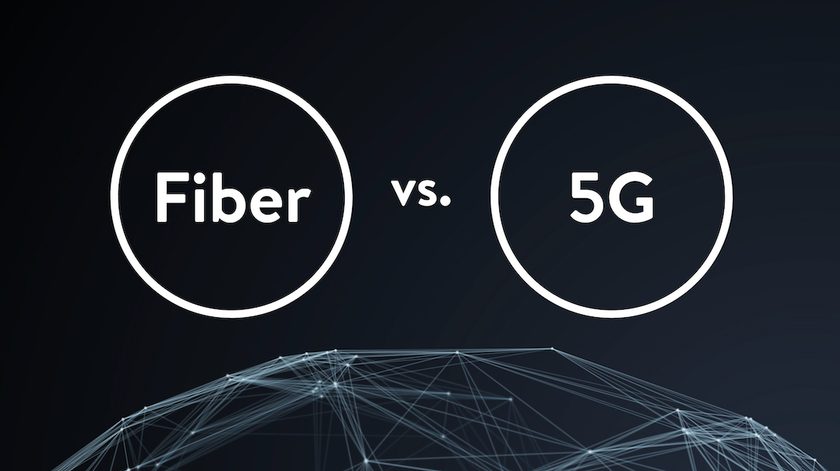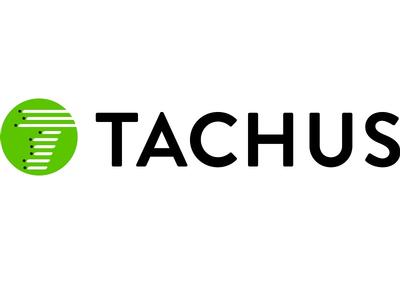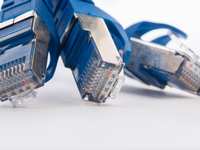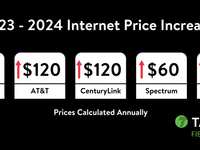Fiber vs. 5G: Making the Right Choice for Your Internet Needs

Introduction
In today's digital landscape, technology is constantly evolving to keep up with society's ever-changing demands. Internet technology, in particular, has seen many monumental changes within a short period of time. Traditional options like cable and DSL Internet can no longer compete with newer and more advanced technologies. Among the most talked-about choices are Fiber-Optic and 5G cellular Internet.
In this blog post, we will explore both of these revolutionary advancements in Internet technology, comparing their similarities, the indifferences and their overall performance.
We'll uncover why Fiber Internet emerges as the preferred choice for most consumers and why Tachus Fiber Internet stands as the superior solution for high-speed connectivity in Greater Houston.
The Power of Fiber Internet
Firstly, let's talk about Fiber-Optic Internet, a technology that uses thin glass fiber strands to transmit data at breakneck speeds. Unlike traditional types of Internet that use copper wires or radio waves, Fiber-Optic Internet uses light to deliver data, resulting in faster upload and download speeds, improved signal quality, and increased reliability.
Seamless Connectivity with Fiber Internet
Imagine having a direct connection to the Internet using Fiber-Optic cables that transmit data at near-light speed. With Fiber Internet, you can seamlessly handle everything from social media, documents, and emails to music, gaming, and television. It boasts superior upload speeds for stable and precise video calls and conferences. Fiber Internet can power multiple devices simultaneously without any slowdowns, making it the number one choice for modern households and businesses.
What is 5G Internet
Now let's dive into the latest wireless cellular technology, 5G Internet. 5G stands for the fifth generation of cellular networks. It uses a network of connected stations that send out strong signals. These stations are placed in different locations to cover a large area and provide internet access to many people simultaneously.
To make this technology available, telecommunication companies buy specific frequencies reserved for them through competitive auctions. These frequencies are like dedicated highways allowing companies to expand their network infrastructure and reach more people with 5G services. Companies must pay for these frequencies to build and improve their networks.
5G Internet Distribution
Like cable, satellite, and Fiber Internet, 5G cellular Internet is delivered to your property and distributed through Wi-Fi using a router. Most users rely on Wi-Fi and a router unless they prefer wired connections foreach device.
The 5G network comprises small cell sites placed strategically throughout the city, often on existing cell phone towers or buildings. These sites connect to the Internet, enabling the connection to your device.
The Challenges of 5G Internet
Although 5G Internet can provide adequate speeds, it is vulnerable to interference from buildings and other structures. The quality and speed of your connection depend on the number of cell phone towers and your distance from them.
In contrast, Fiber Internet uses physical wires to deliver the signal directly to your location, ensuring a reliable and consistent internet connection without obstructions such as trees or buildings getting in the way.
Connection Types: Fiber vs. Cellular
The primary distinction lies in their connection types when comparing Fiber Internet and cellular 5G Internet. Fiber Internet is hardwired, delivering a reliable and fast signal directly through physical wiring.
On the contrary, 5G Internet relies on wireless signals transmitted through the air. This difference allows Fiber to provide a superior bandwidth capacity, enabling it to carry significantly more information than cellular Internet.
Data Transmission and Limitations
5G Internet services have notable disadvantages in data transmission. With their primary focus on mobile phone service, 5G providers often limit the capacity for consistent data delivery. This is needed for activities like streaming movies and TV, video calling and conferences, and online gaming.
It is common for cellular companies to lower Internet speeds and quality, set limits on data usage, and slow down the bandwidth to handle the high demand for data. Unfortunately, this often results in negative experiences for their customers, causing tremendous frustration.
Fiber Internet, however, never imposes data caps or bandwidth throttling due to its superior technology. This gives it the capability of handling high bandwidth capacity without becoming overwhelmed. It offers secure and fast download and upload speeds, ensuring seamless online experiences without intentional slowdowns.
Enhanced Data Security with Fiber Internet
Fiber Internet offers fast and dependable connectivity and improved data security. Unlike wireless signals prone to interception, Fiber uses secure Fiber-Optic cables directly connected to your premises. This advanced technology provides additional protection, keeping your sensitive data safe from cyber criminals such as hackers and scammers.
Introducing Tachus Fiber Internet
Now that we've covered the advantages of Fiber Internet, it's time to introduce the ultimate solution for high-speed connectivity in the Greater Houston area. With almost 2,000 Google reviews and an outstanding rating of 4.9 stars, Tachus Fiber Internet offers unparalleled performance for your home or business.
While Fiber Internet is already considered the gold standard, Tachus takes it further by offering lifetime pricing, uncapped data, and no contracts or hidden fees. This freedom allows customers to change plans and add services without signing a long-term contract or worrying about hidden costs. Plus, lifetime pricing ensures customers can enjoy the same rates for the longterm without worrying about price increases.
Fiber Internet as the Clear Winner
In summary, some people may claim that 5G can replace traditional Internet options like DSL and Cable Internet. However, when comparing Fiber and 5G, Fiber Internet is the better option. Fiber Internet offers incredibly fast speeds, a reliable signal, ample bandwidth capacity, and enhanced data security, surpassing the capabilities of 5G.
Experience the power of Fiber with Tachus and enjoy a high-speed and reliable Internet connection for all your digital needs.
To learn more about Tachus Fiber Internet and availability in your area, visit get.tachus.com or give us a call at 832-791-1100. As a local Internet provider located in The Woodlands, our friendly team of Texans will gladly assist you and ensure you have the best Internet experience possible.











